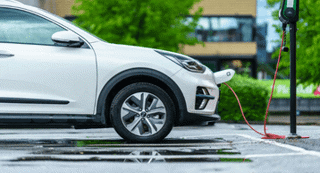Businesses failing to correctly use their telematics systems to monitor – and act upon - drivers’ behaviour could be leaving themselves exposed to costly legal action in future.
The warning comes from vehicle-to-business technology provider, In-Car Cleverness, as it highlights the risks of being found guilty of ‘wilful blindness’.
“Having visibility of potentially dangerous or poor driving habits and then not acting upon it appropriately, leaves individuals and businesses liable in the eyes of the law,” explains Tim Eaves, commercial director of In-Car Cleverness.
“Given the advances in the analytics available, the concern is whether or not those responsible have the requisite skills to interpret the data, or spot the early warnings.
“There is also a question mark over whether or not there is there enough training and benchmarking support to complement the technology.”
Nevertheless, by the end of 2014, it’s estimated that more than half a million vehicles will be equipped with some form of telematics.
As the technology becomes more prevalent and ‘mainstream’ for business, Eaves says that simply by not using it to improve risk management could soon constitute ‘wilful blindness’.
He adds: “The number of companies adopting and relying on telematics is only going to grow. As it does so, those who are slow to minimise the risk of accidents could eventually be seen as culpable by their inaction - once an accident has happened, it’s too late.
“In simple terms, ‘wilful blindness’ means turning a blind eye and, quite apart from the material cost savings that telematics can deliver, fleet operators may soon find there’s a legal reason to further underpin the financial benefits.”
In-Car Cleverness features a unique accident detection system, which helps to minimise liability disputes after crashes as well as flagging erratic, dangerous and inefficient driving.
Eaves says that the system is proven to deliver saving of at least 10% by reducing fuel, insurance and maintenance costs and will also represent “a significant improvement in risk management and duty of care” through its combination of advanced vehicle monitoring, dashboard analytical tools and benchmarking data.
In-Car Cleverness is part of the Automotive & Insurance Solutions (AIS) Group.





















Login to comment
Comments
No comments have been made yet.